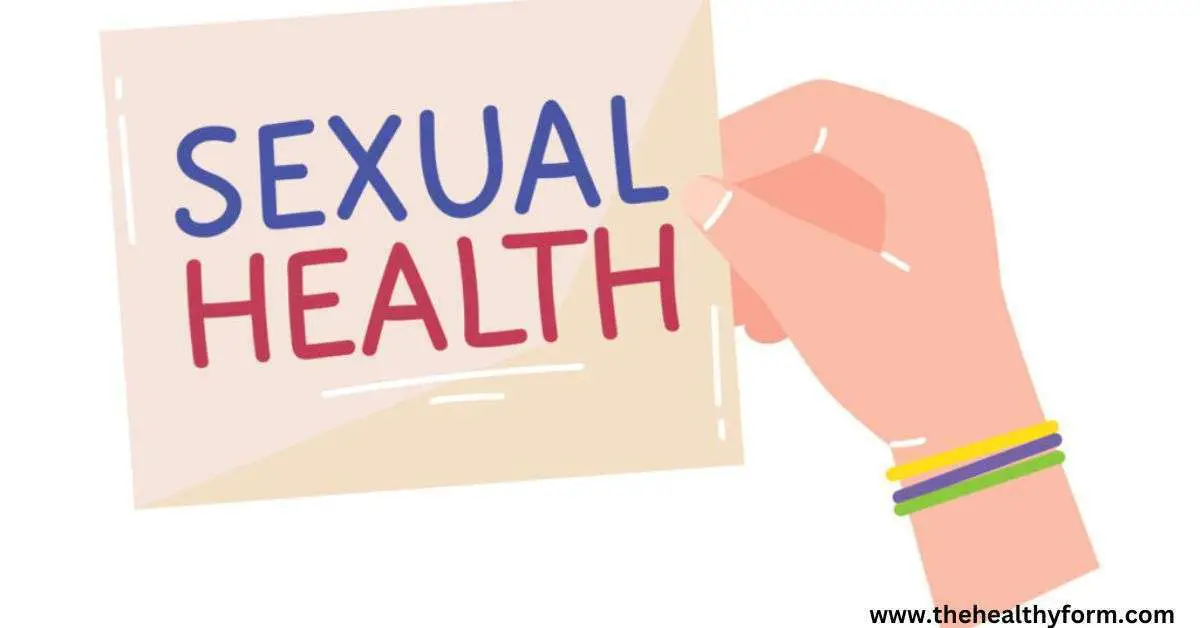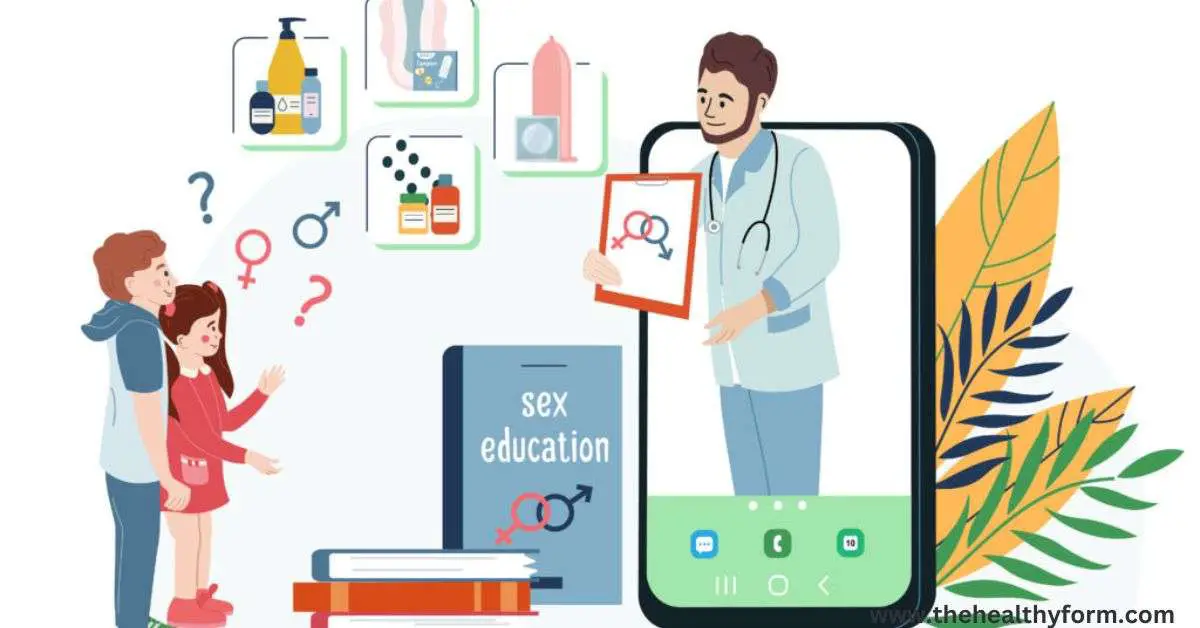Understanding and Protecting Your Sexual Health: Tips and Advice
Learn the essential steps to Understanding and Protecting Your Sexual Health with our expert guidance. Explore the latest insights, tips, and strategies to maintain a healthy and fulfilling sex life. Start prioritizing your sexual wellness today! Sexual health is an important aspect of overall health and well-being. It involves understanding and protecting your sexual well-being and taking care of your physical, emotional, and social health related to sexual behavior. Unfortunately, sexually transmitted infections (STIs) are common and can impact anyone, regardless of age, gender, or background. It’s important to be proactive in protecting your sexual health and seeking help if needed.
According to the Centers for Disease Control and Prevention (CDC), there are approximately 20 million new STIs annually in the United States. The most common STIs include:
- Chlamydia
- Gonorrhea
- Syphilis
- Human papillomavirus (HPV)
- Herpes
- HIV

What are the signs of a sexually transmitted infection (STI)?
STIs can have various symptoms, so knowing the signs and seeking help is important. Some common signs of STIs include:
- Abnormal odor or discharge coming from the vaginal region
- Having a painful or burning urination
- Sexual discomfort
- Rashes, lumps, or sores in the genital region
- Inflammation or itching in the vaginal region
- Bleeding after or between menstruation
- Lymph nodes in the groin region that are swollen
- Body pains, headaches, or a fever (symptoms of some STIs such as HIV and syphilis)
- Diarrhea, vomiting, or nauseous (symptoms of some STIs such as herpes and hepatitis)
- Lower abdominal pain or ache (a symptom of pelvic inflammatory disease, which can result from some STIs)
- Unaccounted-for weight loss (a symptom of some STIs such as HIV)
Remembering that certain STIs may not exhibit symptoms is vital, so routine testing is necessary. It’s critical to be checked out by a doctor or clinic that focuses on sexual health if you think you may have been exposed to an STI or are exhibiting any of these symptoms.
What are the best ways to prevent STIs?
There are a variety of ways to protect yourself from STIs. Some strategies for preventing STIs include:
• Adopting abstinence: The best method for preventing STIs is to refrain from sexual activity.
• Proper condom use: Wearing condoms each time you have sex can help lower your chance of contracting STIs. Check the condoms’ expiration date, avoid oil lubricants, and use a fresh condom for each sexual session to ensure you use them correctly.
• Employing dental dams: To lower the risk of STIs during oral intercourse, dental dams are little sheets of latex or polyurethane that can be used.
• Avoid sharing sex toys: Using a fresh condom on the device each time it is used or carefully cleaning it between partners might reduce the risk of STIs.
• Communicating openly and honestly with sexual partners: Being tested beforehand and discussing your sexual partners‘ STI status can help lower your risk of contracting STIs.
• Maintaining excellent hygiene: Hand- and genital washing before and after sexual activity can help lower the risk of STIs.
• Refraining from using drugs or alcohol before or during sexual activity: These substances can impair judgment and make it more likely that hazardous sexual conduct will be engaged in, which increases the risk of STIs.

What are the best treatments for STIs?
The best treatment for STIs will depend on the specific infection. Some common treatments for STIs include:
- Antibiotics: Antibiotics are often used to treat bacterial STIs such as chlamydia, gonorrhea, and syphilis. The antibiotic type and treatment duration will depend on the specific infection and the individual’s health status.
- Antiviral medications: Viral STIs such as herpes and HIV can be treated with antiviral drugs. These medications can help reduce the severity and frequency of outbreaks and the risk of transmission.
- HPV vaccines: HPV vaccines are highly effective in preventing certain types of HPV, including those that can cause cervical cancer. The vaccine is typically given in a series of two or three doses.
- Topical creams and ointments: Some STIs, such as genital warts and herpes, can be treated with topical creams and lotions. These medications can help reduce the severity of symptoms and speed up the healing process.
- Counseling and support: STIs can significantly impact an individual’s mental and emotional well-being. Counseling and support can help individuals cope with the diagnosis and manage any related stress and anxiety.
- Partner treatment: It’s essential for individuals who are diagnosed with an STI to inform their sexual partners so that they can also be tested and treated if necessary. Partner treatment can help prevent the spread of the infection and reduce the risk of reinfection.
What are the best resources for sexual health information and support?
If you’re concerned about your sexual health or have questions, various resources are available for information and support. Some options include:
Primary care doctor: Your primary care doctor can provide information on sexual health and may be able to test for STIs.
- Planned Parenthood: Planned Parenthood is a trusted resource for sexual health information and services, including STI testing and treatment.
- Sexual health clinics: Sexual health clinics, such as those offered through the CDC, can provide STI testing and treatment.
- Online resources: Various online resources, such as the CDC’s website, provide information on sexual health and STIs.
What are the best ways to communicate about sexual health with a partner?
Communicating about sexual health with a partner is important for protecting your sexual well-being. Here are some tips for talking to a partner about sexual health:
- Be open and honest: Be open and honest about your sexual history and any concerns you may have about STIs.
- Set boundaries: Set boundaries about what is and is not acceptable regarding sexual activity.
- Use protection: Discuss using protection, such as condoms and dental dams, to reduce the risk of STIs.
- Get tested: Encourage your partner to get tested for STIs and discuss your test results with each other.
- Seek help: If you have concerns about your sexual health, don’t hesitate to seek help from a healthcare professional.
FAQ about Understanding and Protecting Your Sexual Health
Here are some of the most common questions people have about understanding and protecting your sexual health:
What is sexual health?
Sexual health is a state of physical, emotional, mental, and social well-being related to sexuality. It is about having a positive and respectful approach to sexuality and sexual relationships and the ability to have pleasurable and safe sexual experiences.
Why is sexual health important?
Sexual health is important for several reasons. Firstly, it is crucial for physical health as it can help prevent sexually transmitted infections (STIs) and unintended pregnancies. It also plays an important role in our mental and emotional well-being, as it can impact our self-esteem, relationships, and overall quality of life.
What are some common sexual health issues?
Some common sexual health issues include STIs such as chlamydia, gonorrhea, and herpes, unintended pregnancies, erectile dysfunction, low libido, and sexual dysfunction. It is important to seek medical advice if you are experiencing any sexual health concerns.
How can I maintain good sexual health?
To maintain good sexual health, it is important to practice safe sex by using condoms or other barrier methods to prevent STIs and unintended pregnancies. It is also important to communicate openly and honestly with sexual partners, get regular check-ups with a healthcare provider, and prioritize self-care, including getting enough sleep, eating a healthy diet, and managing stress.
Conclusion
Sexual health is an important aspect of overall health and well-being. It’s important to be proactive in protecting your sexual health and seeking help if needed. Communicate with your partner about sexual health and use protection to reduce the risk of STIs. If you have concerns about your sexual health, don’t hesitate to seek help from a healthcare professional.





